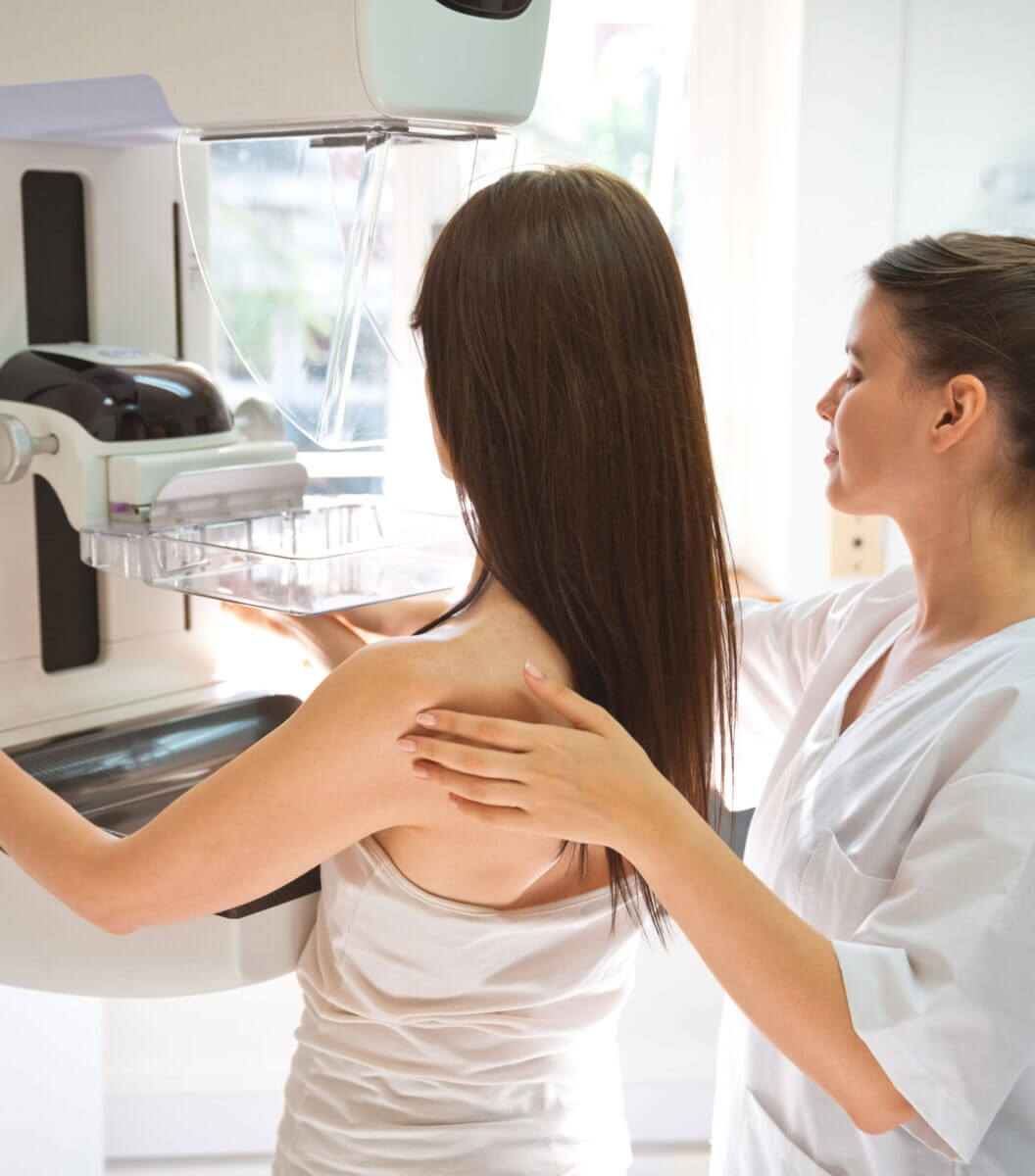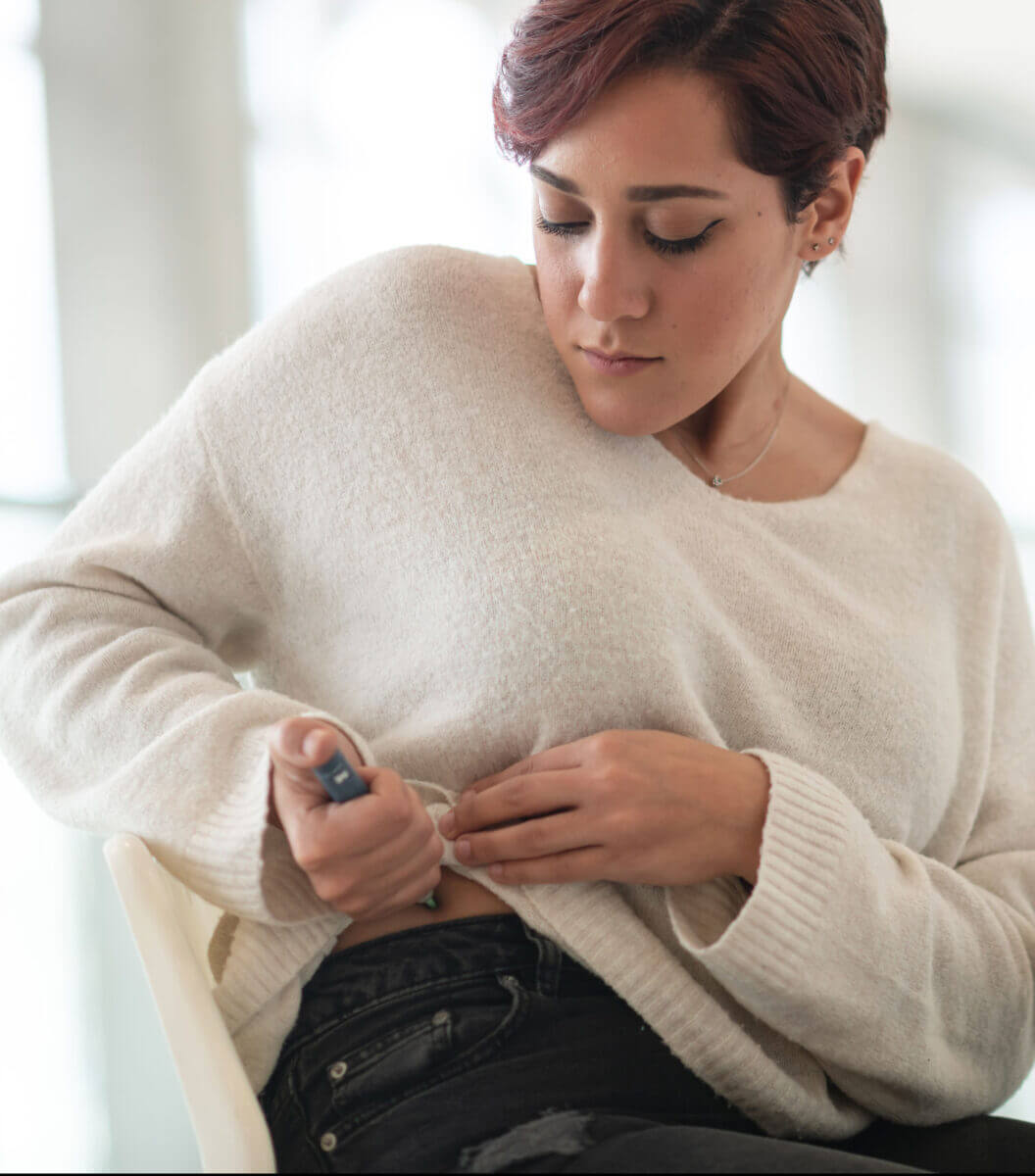Being the “Chief Everything Officer” at home (and sometimes at work) is all well and good. But it’s not always good for your health. It’s time to make your overall well-being a priority. These resources, articles and yes, even this quiz are designed to help make it easier.
Look what we found.
WomansHealthAlly.com from Cigna HealthcareSM is an entire website dedicated to women’s health. Stay up to date with the latest findings and get inspired along the way.

Did you get your screenings?
Here are some recommended screenings for women, and why they’re so important.
- Blood pressure – High blood pressure or hypertension is one of the key risk factors for cardiovascular disease, the leading cause of death in women.2 Start getting tested at age 20.
- Blood sugar – If you’re pregnant or plan to be, get screened before you conceive or at your first prenatal visit. To help prevent type 2 diabetes, start getting screened at age 35.
- Pap smear – With regular screening tests and follow-ups, cervical cancer is the easiest female cancer to prevent. Start getting the test at age 21.
- Mammogram – Finding breast cancer in its early stages can help make treatment more successful. Have your first mammogram around age 40, or sooner if you have family history.
- Bone density – Hormonal changes that happen during perimenopause and at menopause directly affect bone density. Check with your doctor about when to get screened.3
Most preventive screenings – just like your annual physical – are covered 100% for you and your covered dependents when you stay in-network.4 Talk to your doctor about which screenings are right for you and get them on your calendar, stat.
Little known facts about breast cancer.
Studies show that 50% –70% of breast cancers are discovered by women during breast self-exam or just breast self-awareness. Here are a few other breast cancer facts we think you’ll find helpful:
- Breast cancer is more common in the left breast than the right.5
- Your race/ethnicity may increase your chances of getting breast cancer.5
- Women with dense breasts are 4–5 times more likely to get breast cancer than women with fatty breasts.6
- When breast cancer is found early, the five-year relative survival rate is 91%.7
If an annual mammogram does spot something, here are some tips on how to stay positive and how to get the support you need.


How sweet it’s not.
You may know that heart attack symptoms are different in women compared with men. Turns out, there are gender differences when it comes to diabetes as well. Health issues that are unique to the female anatomy can actually increase your risk of developing type 2 diabetes. These include:
- Having had gestational diabetes
- Having a baby that weighed 9 pounds or more at birth
- Having polycystic ovary syndrome (PCOS)
- Experiencing the hormonal changes that happen with age or menopause
Here are just a few of the programs that are available to you and your covered family members – at no added cost – to help avoid or manage type 2 diabetes.
Texas Children’s Diabetes Education Program

Life Stages
Tips for a healthy pregnancy.
Having a baby can be one of the most beautiful experiences in the world. But for too many women – especially women of color – there are risks that come along with pregnancy and birth. So it’s important to be proactive to help you have a safe, healthy pregnancy and delivery.
Here are some important things to consider:
- Be sure you feel safe and comfortable with your OB/GYN.
- Have your blood pressure monitored often.
- Have a birthing plan.
- Listen to your body if you experience any unusual symptoms before or after delivery.
Learn the urgent maternal warning signs relating to pregnancy and call your doctor immediately if you have concerns. And if you’ve got feelings of anxiety or depression before or after your baby is born, be sure to get the mental health support you need.
Getting pregnant isn’t always easy. Your benefits can help.
If you need help conceiving, you have a benefit that can help. Fertility treatments are covered 100% up to a $20,000 lifetime maximum (including both medical and pharmacy costs) for you or a dependent covered under a Texas Children’s medical plan when you use a Texas Children’s–approved provider. For details, access your Family Toolkit.
Let’s talk about perimenopause. Since hardly anyone does.
Brain fog. Mood swings. Sleepless nights. Perimenopause is all too real, but all too often it’s not talked about. Even by many doctors. So you might not know what’s going on with your body when these changes start to happen. And hormone tests don’t always help.
Here are some symptoms to be aware of:8
- Irregular periods
- Hot flashes
- Sleep problems
- Irritability or anxiety
- Changes to your sex drive
If any of these symptoms or other issues interfere with your life or well-being, talk openly about it with your OB/GYN or another doctor. And don’t forget, your onsite employee assistance program (EAP) is an easy way to get the support you need for all your mental health concerns.
How to make menopause more manageable
Menopause is so not fun. But it is a stage of life that’s inevitable. There are a few lucky women who don’t experience menopausal symptoms. For the rest, here are a few tips that can help make this time of life easier.
- Scale back on those extra pounds – As if losing weight wasn’t hard enough, after menopause it’s even harder. If you’re struggling, download Noom®, a science-based app that can help you make healthy lifestyle choices. It’s available at no cost to you through your Texas Children’s benefits.
- Rethink your sleep habits – You don’t have to kiss a good night’s sleep goodbye. By creating a bedtime routine, turning off your electronics and avoiding caffeine late in the day, you’ll help improve your snooze.
- Rev things up in the bedroom – When estrogen plummets, sometimes your sex drive does as well. Practicing mindfulness has been known to help.9
Too busy for self-care? This can help.
We get it. Self-care can feel time consuming. Even overwhelming at times. But self-care is an important way to help you stay healthier overall. The “I’m too busy for a quiz” quiz from Cigna Healthcare offers self-care hacks you can actually fit into your day.
* Not all preventive care services are covered. For example, immunizations for travel are generally not covered. See your plan materials for a complete list of covered preventive care services.
- Rodriguez D. “12 Health Screenings Women Should Have.” Everyday Health. Page last updated February 22, 2023. https://www.everydayhealth.com/womens-health/10-screenings-all-women-should-have.aspx
- Centers for Disease Control and Prevention. “About Women and Heart Disease.” May 15, 2024. https://www.cdc.gov/heart-disease/about/women-and-heart-disease.html
- Bone Health and Osteoporosis Foundation. “What Women Need to Know.” Page last accessed August 23, 2024. https://www.bonehealthandosteoporosis.org/preventing-fractures/general-facts/what-women-need-to-know/
- Not all preventive care services are covered. For example, immunizations for travel are generallynot covered. See your plan materials for a complete list of covered preventive care services.
- Demarco C. “Is breast cancer more common on the left side?” University of Texas MD Anderson Cancer Center. August 9, 2023. https://www.mdanderson.org/cancerwise/is-breast-cancer-more-common-on-the-left-side.h00-159621012.html
- Susan G. Komen. “Factors Linked to Breast Cancer Risk.” Page last updated April 26, 2024. https://www.komen.org/breast-cancer/risk-factor/factors-that-affect-risk/
- American Cancer Society. “Survival Rates for Breast Cancer.” Page last revised January 17, 2024. https://www.cancer.org/cancer/types/breast-cancer/understanding-a-breast-cancer-diagnosis/breast-cancer-survival-rates.html
- Mayo Clinic. “Perimenopause.” May 25, 2023. https://www.mayoclinic.org/diseases-conditions/perimenopause/symptoms-causes/syc-20354666
- Mayo Clinic. “Menopause.” August 7, 2024. https://www.mayoclinic.org/diseases-conditions/menopause/symptoms-causes/syc-20353397
- Vegunta S. “Mind over matter: Practicing sexual mindfulness.” Mayo Clinic. November 17, 2022. https://mcpress.mayoclinic.org/living-well/mind-over-matter-practicing-sexual-mindfulness/